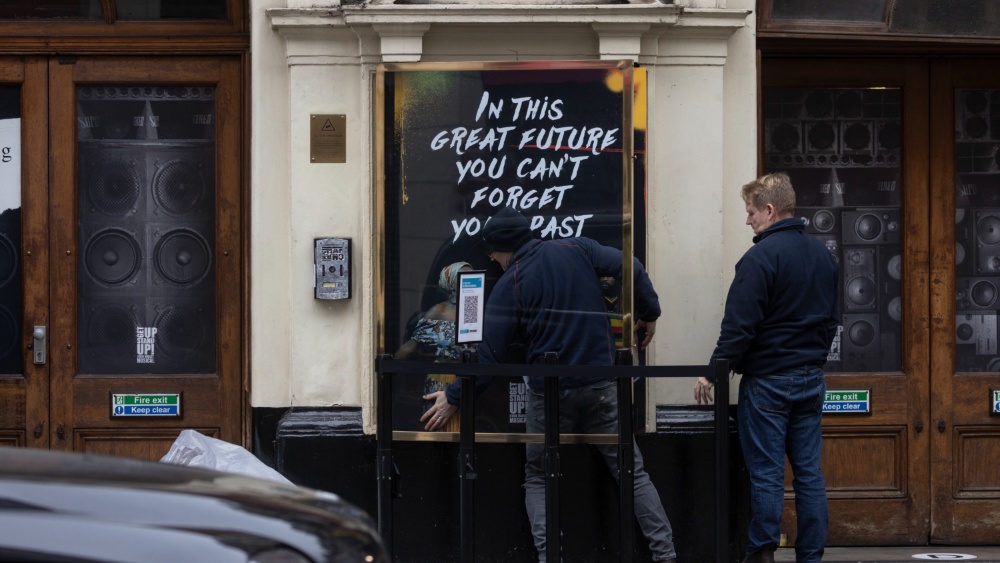U.Okay. Leisure freelancers are dealing with an unprecedented disaster, with nearly half of their income under a mandated minimum wage, consistent with the Ultimate Large Freelancer Survey (FMTW) launched by freelancers on Thursday.
The sober report, titled “Who is getting hit?” shows that 44% of the freelancers surveyed earn less than U.Okay. In the 2023-24 currency 12 months, the national residential wage was £11.44 ($15.50 per hour), a dramatic increase of 34% in the early 12 months.
The survey covers the breadth of U.Okay. Casual, respondents work throughout the theater (84%), accommodation and live performances (34%), opera (23%), dance (22%), film (16%), television (14%), audio recorded (14%), video games (2%) (2%) and circus (4%), including different departments.
“The information provided by hundreds of respondents since 2020 shows how U.Okay's art freelancers find themselves,” said Mimi Doulton, a classical singer and FMTW volunteer. “The response from the year highlights the increased low wages, inequality and insecurity.”
Disasters are deeper than wages alone. The survey found that 32% of freelancers reported working 50% or additional unpaid hours, while 75% mentioned that their work-related bills had increased over the past 12 months. Only 30% of reported revenue will increase, and struggling revenues fell by 40%.
Mental health issues are reaching an important range, with 39% of respondents reporting worsening mental health over the past 12 months feeling “fair” or “very unsafe” about their careers, which is 65% in 2024.
Perhaps the most shocking thing is: 1/4 of freelancers are considering leaving the business altogether, citing low wages (68%), insufficient work alternatives (57%), mental health problems (52%) and job insecurity (48%) are the main elements.
An unknown freelancer admitted: “Even if I was hired for 45 weeks of 12 months throughout a completely different program, the allegations of compensation were not enough to overprice my mortgage and residence.”
The salary gap is particularly evident for marginalized teams. Of these incomes below national residential wages, the number of people with disabilities rose to 55%, with 54% coming from a more private socio-economic background, compared with 47% for female respondents.
The geographical gap is equally disturbing. Regardless of London's function, because of the company's hub, 53% of freelancers earn less than the salary of London homes ($13.85 per hour), meaning that the batch lives in the metropolis with a lot of work concentrations.
Film and TV freelancers respond to questions that are felt throughout the leisure sector. One of the noted respondents “Brexit made European tours heavy, while another noticed: “There is no doubt that the business has not been 'stronger' due to the pandemic. ”
In investigating knowledge, these key points of funding disasters are evident. Only 8% of respondents received funding from the Arts Council or Scottish Inventors, which illustrates the difficult atmosphere of unbiased artists and small producers in all leisure verticals.
Synthetic intelligence is a growing concern, especially in dubbing and composition work. “I've become more skilled in security due to the rise of artificial intelligence.” “Shoppers mentioned problems like 'We need to use the sound of AI information, but it can't be a little bit worse, so we call you.'”
The number of union members remains at 56%, but the freelancer believes that affordability issues and his or her role are not enough to be a limitation of becoming a member. Many people call free unions or income-based sliding scale membership options.
The survey, conducted annually since 2020, marks the cutting edge of a intentional five-year collection, documenting the deteriorating situation of U.Okay.
Freelancers show resilience and hope regardless of the grim statistics. From organizations that provide mental health to those organizations that implement real compensation transparency and support work for mothers and fathers, many have shared examples of fines.
FMTW’s recommendations embody recommendations for working with the authorities and provide funding for our bodies to develop guaranteed real salaries, promote a higher understanding of the needs of freelancers, and create mechanisms for problem exploitation practices.
“The performing arts within U.Okay cannot survive, and there are no thriving freelancers,” Dalton said. “It’s time for the president, union and humanities to act with that knowledge and the urgent need to make a basic adjustment to your entire business working relationship with freelancers.”

